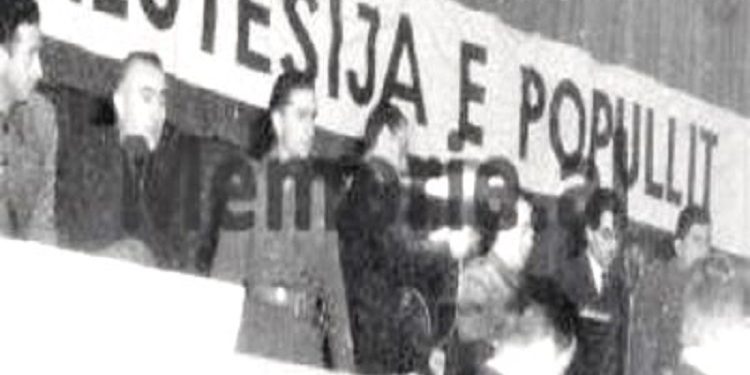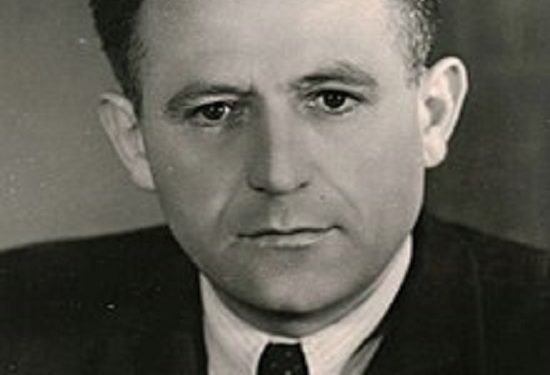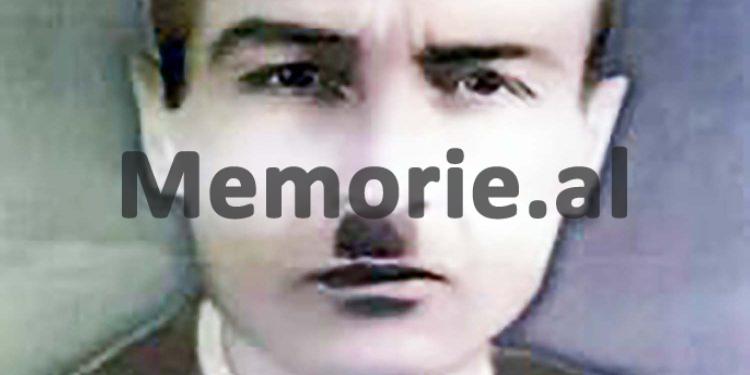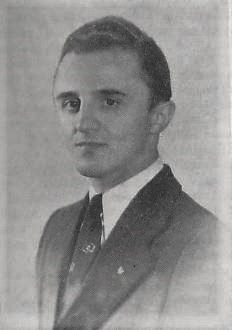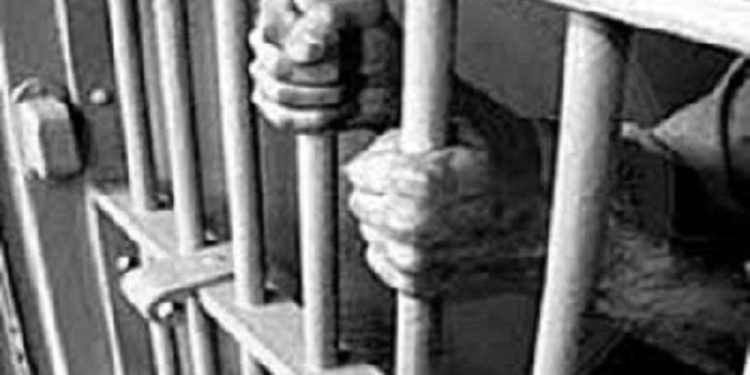Memorie.al / Even though she was over 70, that hot July day in 1960 continued to appear in her memories – faded in details, but indelible in the facts of how the 16-year-old Shqipe would lose her father forever. The persecution of Ibrahim Tërshana had begun early, right after his return from higher studies in Istanbul and specializations completed in Florence, Italy. However, because of the position as economic director of the first Albanian Stock Exchange he had held during the Zogist regime, he would suffer severely after 1944 when the communists came to power. He was accused of being part of the “hostile group of Yugoslavs” and for “agitation and propaganda against the people’s power.”
The initial indictment at the first court appearance was a sentence of 20 years of deprivation of liberty, but due to lack of evidence, and after long delays in the Tirana investigation, the sentence was reduced to eight years. Between the iron bars of the prison and the internment camp in Mali i Bardhë of Kruja, Ibrahim Tërshana’s life became even more difficult, especially after he contracted tuberculosis. He was urgently admitted to the Tirana Sanatorium, while summonses for testimony at the investigation started disturbing him again. He realized that the goal was to return him to prison, and so, to save his family from the burden of persecution, he decided to commit suicide.
With no less pain, his daughter, Shqipe Tërshana, recounts the event. She says everything started after her father’s cousin, Edip Tërshana, the well-known teacher with a degree in Pedagogy from France, wrote a direct letter to Enver Hoxha, openly stating that his (Hoxha’s) relations with Yugoslavia were treason. That was enough, and all the men of the Tërshana clan were “nailed down” by the communist regime, counting two executed and many interned. Among them, Ibrahim Tërshana…!
Ms. Shqipe, after completing his higher education, your father returned from Turkey to Albania to practice his profession. What were the beginnings of Ibrahim Tërshana’s work?
In 1920, my father completed his higher education in Economics in Istanbul, Turkey. He then settled in Florence for about two years, where he completed several specializations in economics and finance. His early work as a finance director was in Kukës, from 1927 to 1932, for the private entities of that city. Afterwards, he was transferred to Shkodër, in the same job position until 1934.
He returned to Tirana because he was requested to start work at the first Albanian Stock Exchange, which was created at that time during the Zogist regime, and my father came into the position of Director of the Stock Exchange. He worked devotedly for several years in a row there, while after the end of the War, in 1945, he was moved from that job position to head the finance of the unified cooperative in the capital, a time when his arrest also occurred.
Why was he arrested?
The accusations were direct, even though many years later, Xhavit Struga, the investigator of my father’s case, told us at his home that: “Ibrahim was sentenced because he did not do what the Party asked of him.” In those years, my father had taken in a Yugoslav lodger, so when this became known, they accused him of failing to report and of agitation and propaganda. During this period, my father was working at the Albanian Stock Exchange. Meanwhile, there was also an attempted attack by a group of Yugoslav engineers, technicians, and specialists, who were said to want to blow up some of our country’s railways.
Thus, they found the precedent of the Yugoslav citizen lodger that my father had in his house and made him part of the hostile Yugoslav group. The prosecutor of the case was Josif Pashko and he demanded the death penalty for my father. Afterwards, amidst numerous delays in the Tirana investigation, the Prosecution lowered the sentence to 20 years, while due to lack of evidence; the final decision was given as eight years of deprivation of liberty.
Did you often go to meet your father during the months of the investigation?
It was a very difficult period for our entire family. I was about 14 years old at the time and certainly have things to remember. We used to go with my mother, Zarife, my sisters, and brothers to send him food in the investigation cells. He was getting weaker and weaker. And he always seemed more worried. If we didn’t bring him food, he could have died, because the mistreatment of the accused persons who were isolated there was terrible. After the verdict was given, my father ended up as a laborer in the Ura e Buna camp and in Beden of Kavaja.
After his release from prison, he was sent to internal exile (internment) in Mali i Bardhë of Kruja. Those years were also very difficult for the family; meanwhile, my elder brother, Bardhyl, was expelled from the university, and I was not given the right to continue my studies even in high school. In internal exile, my father’s health condition would worsen greatly, as he also contracted tuberculosis in 1960.
Was this the reason he was hospitalized, from which he never came out alive…?
My father’s suicide is one of the saddest events in my life for me. I had never even thought that, even after all those sufferings, the doors of prisons and internment camps, he would choose self-sacrifice. On that hot July day, we went as every day to visit my father in the hospital, together with my mother. My father walked us to the door. I will never forget his eyes that day, so hurt, and a body weakened by illness. Just after we had returned home, the news came that my father had jumped from the sixth floor of the Sanatorium. It was the last time I saw my father…!
In your opinion, why did it come to that?
Because, even though he was ill with tuberculosis, the investigation authorities never left him alone. As soon as they learned that my father was admitted to the Sanatorium, the investigator Thoma Thomai requested him to come to the investigation, for more questions about his case. Then there were many summonses that came to his address, and these made him understand that they wanted to put him back in prison. My father told me one day: “I have seen the prisons; I will not go back to prison.”
Considering also the fact that the family would be ruined because the consequences would fall on us too – internment and family persecution. So he chose the other path, that of sacrifice. My father was 66 years old when he committed suicide. For years, the greatest pain of my life remained the loss of my father. It was an unexpected event that happened in our lives. A man who had suffered so much, like him, sacrificed his life for us, his children.
What happened to your family afterwards?
I was 14 years old when I started working for the first time with my sister, as manual laborers at Rrapi i Treshit. Due to a bad political biography, I was not allowed to continue high school, and the only choice left to me was manual labor. From 1953 to 1955, I worked as a laborer in this military area, located at the entrance to the Tufina cemetery. I was removed from there after two years because they felt threatened by the ‘flawed biography’ (with a politically sentenced father), and later I ended up as a worker in the Porcelain factory in Tirana.
The work I did was to smooth the bowls with sandpaper, and I stayed at this job for only five months. All my colleagues looked at me with suspicion, often even provoking me with a word or two, but I did my job. After the Porcelain factory, I went to work in tailoring. The beginnings were difficult because I didn’t know how to work the sewing machines, but I quickly got the hang of it. I didn’t have many alternatives for choice because my fate was predetermined after all those things that had happened to my father.
Do you think the origin of this family tragedy is also related to your father’s cousin, Edip Tërshana?
Absolutely there is a connection. Edip Tërshana was the son of my father’s paternal uncle. The story of the teacher, who graduated in Pedagogy from France and returned to give his contribution to his homeland, but whom the communist regime mercilessly struck until they executed him on New Year’s Eve, is already well known.
This was due to the letter that Edip wrote directly to Enver Hoxha, where he criticized that the leader’s relations with Yugoslavia were treason against the homeland, and immediately after this, the persecution began for all the men of the Tërshana clan. Rifat Tërshana was imprisoned, Remziu was also imprisoned, and subsequently all the men of the Tërshana clan were struck in turn, without any mercy. Among them was my father, who, by bearing that surname, suffered his own consequences.
Edip Tërshana’s Letter to Enver Hoxha
On May 17, 1947, in Dobrovë, the Chief of Sigurimi, the criminal Kopi Niko, carried out the arrest of Edip Tërshana. Hysni Alimerko, Jani Ikonomi, Alqi Nushi, and others were also arrested. To force them to accept the accusations, they used the most inhumane tortures on them. At the end of the investigation period, Edip was allowed to meet his daughter and son.
They had brought him some food wrapped in a “Bashkimi” newspaper. On the margins of this newspaper, Edip wrote two letters, one for his daughter, Liri, and the other for the dictator Enver Hoxha. Then he decided to end his life by cutting his veins. One of the guards found him, drowned in blood, by chance. Here is what he wrote, among other things, to the dictator:
“The national ideal has made me be against the National Liberation Movement, I who was its creator. You not only gave up Kosovo and Dibra, but today your so-called people’s power is in bondage to Belgrade, politically and economically. This is treason! I am against the killings with and without trial that are being done to this people. I am against the imprisonments of 20,000 or 30,000 Albanians, only because they are not communists. And this is only because the Slav desires it so. This is treason!” On November 17, 1947, the trial against the 12 accused began, and on the 21st, the sentence was given. Edip was sentenced to death, by firing squad./ Memorie.al




